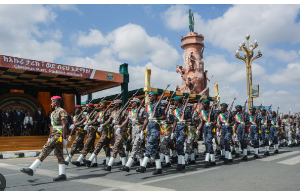Amnesty International (AI) Ghana has reiterated calls on government and security agencies to stop torturing persons accused of criminal acts describing it as an infringement on their human rights. It also asked the government to abolish the death penalty to protect human life. Mr Francis Nyantakyi, Board Chair, AI Ghana, made the call at the commemoration of the 20th World Day Against Death Penalty in Accra, held on the theme: “The use of the death penalty and torture or other cruel, inhuman, or degrading treatment or punishment.” The Death Penalty Day is marked on October 10 annually to unify the global abolitionist movement and mobilises civil society, political leaders, lawyers, public opinion and more to support the call for the universal abolition of capital punishment. The day encourages and consolidates the political and general awareness of the world-world movement against the death penalty. This year’s commemoration was dedicated to highlighting and reflecting on the use of the death penalty and torture, inhuman, degrading treatment as deterrents to crimes. Mr Nyantakyi said torture and other forms of ill-treatment were prohibited under international laws and treaties such as the Convention Against Torture and Cruel adding that “Amnesty Ghana add their voice on the matter to stop those barbaric acts in Ghana.” He said the death penalty in Ghana had frequently been used in the violation of international law and standards, affecting predominantly those from the disadvantaged socio-economic backgrounds. He said: “Since 1985, Amnesty International Ghana has campaigned against the use of the death penalty in Ghana and these rights are protected under the Universal Declaration of Human Rights (UDHR), adopted by the United Nations in 1948. “Amnesty International opposes the death penalty in all cases without exception, regardless of who is accused, the nature or circumstances of the crime, guilt or innocence or method of execution.”





![A file photo of the private jet [Image Credit: Yaw Pare via Facebook] A file photo of the private jet [Image Credit: Yaw Pare via Facebook]](https://cdn.ghanaweb.com/imagelib/pics/153/15348139.295.jpg)







